- Home
- P. G. Wodehouse
Carry On, Jeeves! Page 11
Carry On, Jeeves! Read online
Page 11
‘This is a surprise, what?’ I said, after about five minutes’ restful silence, trying to crank the conversation up again.
‘What is a surprise?’
‘Your coming here, don’t you know, and so on.’
She raised her eyebrows and drank me in a bit more through her glasses.
‘Why is it surprising that I should visit my only nephew?’ she said.
‘Oh, rather,’ I said. ‘Of course! Certainly. What I mean is—’
Jeeves projected himself into the room with the tea. I was jolly glad to see him. There’s nothing like having a bit of business arranged for one when one isn’t certain of one’s lines. With the teapot to fool about with I felt happier.
‘Tea, tea, tea – what? What?’ I said.
It wasn’t what I had meant to say. My idea had been to be a good deal more formal, and so on. Still, it covered the situation. I poured her out a cup. She sipped it and put the cup down with a shudder.
‘Do you mean to say, young man,’ she said, frostily, ‘that you expect me to drink this stuff?’
‘Rather! Bucks you up, you know.’
‘What do you mean by the expression “Bucks you up”?’
‘Well, makes you full of beans, you know. Makes you fizz.’
‘I don’t understand a word you say. You’re English, aren’t you?’
I admitted it. She didn’t say a word. And she did it in a way that made it worse than if she had spoken for hours. Somehow it was brought home to me that she didn’t like Englishmen, and that if she had had to meet an Englishman I was the one she’d have chosen last.
Conversation languished once more after that.
Then I tried again. I was becoming more convinced every moment that you can’t make a real lively salon with a couple of people, especially if one of them lets it go a word at a time.
‘Are you comfortable at your hotel?’ I said.
‘At which hotel?’
‘The hotel you’re staying at.’
‘I am not staying at an hotel.’
‘Stopping with friends – what?’
‘I am naturally stopping with my nephew.’
I didn’t get it for the moment; then it hit me.
‘What! Here?’ I gurgled.
‘Certainly! Where else should I go?’
The full horror of the situation rolled over me like a wave. I couldn’t see what on earth I was to do. I couldn’t explain that this wasn’t Rocky’s flat without giving the poor old chap away hopelessly, because she would then ask me where he did live, and then he would be right in the soup. I was trying to recover from the shock when she spoke again.
‘Will you kindly tell my nephew’s manservant to prepare my room? I wish to lie down.’
‘Your nephew’s manservant?’
‘The man you call Jeeves. If Rockmetteller has gone for an automobile ride there is no need for you to wait for him. He will naturally wish to be alone with me when he returns.’
I found myself tottering out of the room. The thing was too much for me. I crept into Jeeves’s den.
‘Jeeves!’ I whispered.
‘Sir?’
‘Mix me a b.-and-s., Jeeves. I feel weak.’
‘Very good, sir.’
‘This is getting thicker every minute, Jeeves.’
‘Sir?’
‘She thinks you’re Mr Todd’s man. She thinks the whole place is his, and everything in it. I don’t see what you’re to do, except stay on and keep it up. We can’t say anything or she’ll get on to the whole thing, and I don’t want to let Mr Todd down. By the way, Jeeves, she wants you to prepare her bed.’
He looked wounded.
‘It is hardly my place, sir—’
‘I know – I know. But do it as a personal favour to me. If you come to that, it’s hardly my place to be flung out of the flat like this and have to go to an hotel, what?’
‘Is it your intention to go to an hotel, sir? What will you do for clothes?’
‘Good Lord! I hadn’t thought of that. Can you put a few things in a bag when she isn’t looking, and sneak them down to me at the St. Aurea?’
‘I will endeavour to do so, sir.’
‘Well, I don’t think there’s anything more, is there? Tell Mr Todd where I am when he gets here.’
‘Very good, sir.’
I looked round the place. The moment of parting had come. I felt sad. The whole thing reminded me of one of those melodramas where they drive chappies out of the old homestead into the snow.
‘Good-bye, Jeeves,’ I said.
‘Good-bye, sir.’
And I staggered out.
You know, I rather think I agree with those poet-and-philosopher Johnnies who insist that a fellow ought to be devilish pleased if he has a bit of trouble. All that stuff about being refined by suffering, you know. Suffering does give a chap a sort of broader and more sympathetic outlook. It helps you to understand other people’s misfortunes if you’ve been through the same thing yourself.
As I stood in my lonely bedroom at the hotel, trying to tie my white tie myself, it struck me for the first time that there must be whole squads of chappies in the world who had to get along without a man to look after them. I’d always thought of Jeeves as a kind of natural phenomenon; but, by Jove! of course, when you come to think of it, there must be quite a lot of fellows who have to press their own clothes themselves, and haven’t got anybody to bring them tea in the morning, and so on. It was rather a solemn thought, don’t you know. I mean to say, ever since then I’ve been able to appreciate the frightful privations the poor have to stick.
I got dressed somehow. Jeeves hadn’t forgotten a thing in his packing. Everything was there, down to the final stud. I’m not sure this didn’t make me feel worse. It kind of deepened the pathos. It was like what somebody or other wrote about the touch of a vanished hand.
I had a bit of dinner somewhere and went to a show of some kind; but nothing seemed to make any difference. I simply hadn’t the heart to go on to supper anywhere. I just went straight up to bed. I don’t know when I’ve felt so rotten. Somehow I found myself moving about the room softly, as if there had been a death in the family. If I had had anybody to talk to I should have talked in a whisper; in fact, when the telephone-bell rang I answered in such a sad, hushed voice that the fellow at the other end of the wire said ‘Hallo!’ five times, thinking he hadn’t got me.
It was Rocky. The poor old scout was deeply agitated.
‘Bertie! Is that you, Bertie? Oh, gosh! I’m having a time!’
‘Where are you speaking from?’
‘The Midnight Revels. We’ve been here an hour, and I think we’re a fixture for the night. I’ve told Aunt Isabel I’ve gone out to call up a friend to join us. She’s glued to a chair, with this-is-the-life written all over her, taking it in through the pores. She loves it, and I’m nearly crazy.’
‘Tell me all, old top,’ I said.
‘A little more of this,’ he said, ‘and I shall sneak quietly off to the river and end it all. Do you mean to say you go through this sort of thing every night, Bertie, and enjoy it? It’s simply infernal! I was just snatching a wink of sleep behind the bill of fare just now when about a million yelling girls swooped down, with toy balloons. There are two orchestras here, each trying to see if it can’t play louder than the other. I’m a mental and physical wreck. When your telegram arrived I was just lying down for a quiet pipe, with a sense of absolute peace stealing over me. I had to get dressed and sprint two miles to catch the train. It nearly gave me heart-failure; and on top of that I almost got brain fever inventing lies to tell Aunt Isabel. And then I had to cram myself into these confounded evening clothes of yours.’
I gave a sharp wail of agony. It hadn’t struck me till then that Rocky was depending on my wardrobe to see him through.
‘You’ll ruin them!’
‘I hope so,’ said Rocky in the most unpleasant way. His troubles seemed to have had the worst effect on his character.
‘I should like to get back at them somehow; they’ve given me a bad enough time. They’re about three sizes too small, and something’s apt to give at any moment. I wish to goodness it would, and give me a chance to breathe. I haven’t breathed since half-past seven. Thank heaven, Jeeves managed to get out and buy me a collar that fitted, or I should be a strangled corpse by now! It was touch and go till the stud broke. Bertie, this is pure Hades! Aunt Isabel keeps on urging me to dance. How on earth can I dance when I don’t know a soul to dance with? And how the deuce could I, even if I knew every girl in the place? It’s taking big chances even to move in these trousers. I had to tell her I’ve hurt my ankle. She keeps asking me when Cohan and Stone are going to turn up; and it’s simply a question of time before she discovers that Stone is sitting two tables away. Something’s got to be done, Bertie! You’ve got to think up some way of getting me out of this mess. It was you who got me into it.’
‘Me! What do you mean?’
‘Well, Jeeves, then. It’s all the same. It was you who suggested leaving it to Jeeves. It was those letters I wrote from his notes that did the mischief. I made them too good. My aunt’s just been telling me about it. She says she had resigned herself to ending her life where she was, and then my letters began to arrive, describing the joys of New York; and they stimulated her to such an extent that she pulled herself together and made the trip. She seems to think she’s had some miraculous kind of faith cure. I tell you I can’t stand it, Bertie! It’s got to end!’
‘Can’t Jeeves think of anything?’
‘No. He just hangs round, saying: “Most disturbing, sir!” A fat lot of help that is!’
‘Well, old lad,’ I said, ‘after all, it’s far worse for me than it is for you. You’ve got a comfortable home and Jeeves. And you’re saving a lot of money.’
‘Saving money? What do you mean – saving money?’
‘Why, the allowance your aunt was giving you. I suppose she’s paying all the expenses now, isn’t she?’
‘Certainly she is; but she’s stopped the allowance. She wrote the lawyers to-night. She says that, now she’s in New York, there is no necessity for it to go on, as we shall always be together, and it’s simpler for her to look after that end of it. I tell you, Bertie, I’ve examined the darned cloud with a miscroscope, and if it’s got a silver lining it’s some little dissembler!’
‘But, Rocky, old top, it’s too bally awful! You’ve no notion of what I’m going through in this beastly hotel, without Jeeves. I must get back to the flat.’
‘Don’t come near the flat!’
‘But it’s my own flat.’
‘I can’t help that. Aunt Isabel doesn’t like you. She asked me what you did for a living. And when I told her you didn’t do anything she said she thought as much, and that you were a typical specimen of a useless and decaying aristocracy. So if you think you have made a hit, forget it. Now I must be going back, or she’ll be coming out here after me. Good-bye.’
Next morning Jeeves came round. It was all so home-like when he floated noiselessly into the room that I nearly broke down.
‘Good morning, sir,’ he said. ‘I have brought a few more of your personal belongings.’
He began to unstrap the suit-case he was carrying.
‘Did you have any trouble sneaking them away?’
‘It was not easy, sir. I had to watch my chance. Miss Rockmetteller is a remarkably alert lady.’
‘You know, Jeeves, say what you like – this is a bit thick, isn’t it?’
‘The situation is certainly one that has never before come under my notice, sir. I have brought the heather-mixture suit, as the climatic conditions are congenial. To-morrow, if not prevented, I will endeavour to add the brown lounge with the faint green twill.’
‘It can’t go on – this sort of thing – Jeeves.’
‘We must hope for the best, sir.’
‘Can’t you think of anything to do?’
‘I have been giving the matter considerable thought, sir, but so far without success. I am placing three silk shirts – the dove-coloured, the light blue, and the mauve – in the first long drawer, sir.’
‘You don’t mean to say you can’t think of anything Jeeves?’
‘For the moment, sir, no. You will find a dozen handkerchiefs and the tan socks in the upper drawer on the left.’ He strapped the suit-case and put it on a chair. ‘A curious lady, Miss Rockmetteller, sir.’
‘You understate it, Jeeves.’
He gazed meditatively out of the window.
‘In many ways, sir, Miss Rockmetteller reminds me of an aunt of mine who resides in the south-east portion of London. Their temperaments are much alike. My aunt has the same taste for the pleasures of the great city. It is a passion with her to ride in taxi-cabs, sir. Whenever the family take their eyes off her she escapes from the house and spends the day riding about in cabs. On several occasions she has broken into the children’s savings bank to secure the means to enable her to gratify this desire.’
‘I love to have these little chats with you about your female relatives, Jeeves,’ I said coldly, for I felt that the man had let me down, and I was fed up with him. ‘But I don’t see what all this has got to do with my trouble.’
‘I beg your pardon, sir. I am leaving a small assortment of our neckties on the mantelpiece, sir for you to select according to your preference. I should recommend the blue with the red domino pattern, sir.’
Then he streamed imperceptibly toward the door and flowed silently out.
I’ve often heard that fellows after some great shock or loss, have a habit, after they’ve been on the floor for a while wondering what hit them, of picking themselves up and piecing themselves together, and sort of taking a whirl at beginning a new life. Time, the great healer, and Nature adjusting itself and so on and so forth. There’s a lot in it. I know, because in my own case, after a day or two of what you might call prostration, I began to recover. The frightful loss of Jeeves made any thought of pleasure more or less a mockery, but at least I found that I was able to have a dash at enjoying life again. What I mean is, I braced up to the extent of going round the cabarets once more, so as to try to forget, if only for the moment.
New York’s a small place when it comes to the part of it that wakes up just as the rest is going to bed, and it wasn’t long before my tracks began to cross old Rocky’s. I saw him once at Peale’s, and again at Frolics on the Roof. There wasn’t anybody with him either time except the aunt, and, though he was trying to look as if he had struck the ideal life, it wasn’t difficult for me, knowing the circumstances, to see that beneath the mask the poor chap was suffering. My heart bled for the fellow. At least, what there was of it that wasn’t bleeding for myself bled for him. He had the air of one who was about to crack under the strain.
It seemed to me that the aunt was looking slightly upset also. I took it that she was beginning to wonder when the celebrities were going to surge round, and what had suddenly become of all those wild, careless spirits Rocky used to mix with in his letters. I didn’t blame her. I had only read a couple of his letters, but they certainly gave the impression that poor old Rocky was by way of being the hub of New York night life, and that, if by any chance he failed to show up at a cabaret, the management said, ‘What’s the use?’ and put up the shutters.
The next two nights I didn’t come across them, but the night after that I was sitting by myself at the Maison Pierre when somebody tapped me on the shoulder-blade, and I found Rocky standing beside me, with a sort of mixed expression of wistfulness and apoplexy on his face. How the man had contrived to wear my evening clothes so many times without disaster was a mystery to me. He confided later that early in the proceedings he had slit the waist-coat up the back and that that had helped a lot.
For a moment I had the idea that he had managed to get away from his aunt for the evening; but, looking past him, I saw that she was in again. She was at a table over by the wall, looking at me as if I were something the
management ought to be complained to about.
‘Bertie, old scout,’ said Rocky, in a quiet, sort of crushed voice, ‘we’ve always been pals, haven’t we? I mean, you know I’d do you a good turn if you asked me.’
‘My dear old lad,’ I said. The man had moved me.
‘Then, for Heaven’s sake, come over and sit at our table for the rest of the evening.’
Well, you know, there are limits to the sacred claims of friendship.
‘My dear chap,’ I said, ‘you know I’d do anything in reason; but—’
‘You must come, Bertie. You’ve got to. Something’s got to be done to divert her mind. She’s brooding about something. She’s been like that for the last two days. I think she’s beginning to suspect. She can’t understand why we never seem to meet anyone I know at these joints. A few nights ago I happened to run into two newspaper men I used to know fairly well. That kept me going for a while. I introduced them to Aunt Isabel as David Belasco and Jim Corbett, and it went well. But the effect has worn off now, and she’s beginning to wonder again. Something’s got to be done, or she will find out everything, and if she does I’d take a nickel for my chance of getting a cent from her later on. So, for the love of Mike, come across to our table and help things along.’
I went along. One has to rally round a pal in distress. Aunt Isabel was sitting bolt upright, as usual. It certainly did seem as if she had lost a bit of the zest with which she had started out to explore Broadway. She looked as if she had been thinking a good deal about rather unpleasant things.
‘You’ve met Bertie Wooster, Aunt Isabel?’ said Rocky.
‘I have.’
‘Take a seat, Bertie,’ said Rocky.
And so the merry party began. It was one of those jolly, happy, bread-crumbling parties where you cough twice before you speak, and then decide not to say it after all. After we had had an hour of this wild dissipation, Aunt Isabel said she wanted to go home. In the light of what Rocky had been telling me, this struck me as sinister. I had gathered that at the beginning of her visit she had had to be dragged home with ropes.

 Jill the Reckless
Jill the Reckless Uncle Fred in the Springtime
Uncle Fred in the Springtime Sunset at Blandings
Sunset at Blandings Uneasy Money
Uneasy Money The Swoop! or, How Clarence Saved England: A Tale of the Great Invasion
The Swoop! or, How Clarence Saved England: A Tale of the Great Invasion Right Ho, Jeeves
Right Ho, Jeeves The Intrusion of Jimmy
The Intrusion of Jimmy The Jeeves Omnibus - Vol 1:
The Jeeves Omnibus - Vol 1: Aunts Aren't Gentlemen:
Aunts Aren't Gentlemen: The Luck of the Bodkins
The Luck of the Bodkins The Little Nugget
The Little Nugget Money for Nothing
Money for Nothing Pearls, Girls and Monty Bodkin
Pearls, Girls and Monty Bodkin Mulliner Nights
Mulliner Nights Blandings Castle and Elsewhere
Blandings Castle and Elsewhere Love Among the Chickens
Love Among the Chickens Carry On, Jeeves!
Carry On, Jeeves!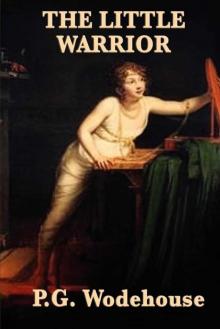 The Little Warrior
The Little Warrior Ice in the Bedroom
Ice in the Bedroom Leave It to Psmith
Leave It to Psmith Thank You, Jeeves:
Thank You, Jeeves: Money in the Bank
Money in the Bank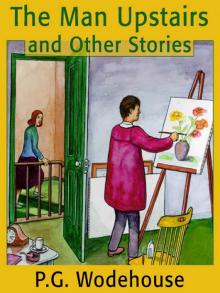 The Man Upstairs and Other Stories
The Man Upstairs and Other Stories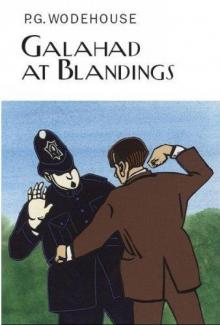 Galahad at Blandings
Galahad at Blandings The Jeeves Omnibus Vol. 5
The Jeeves Omnibus Vol. 5 Uncle Dynamite
Uncle Dynamite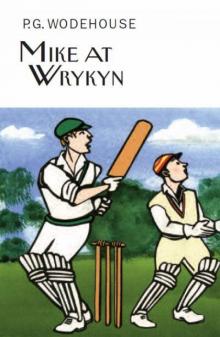 Mike at Wrykyn
Mike at Wrykyn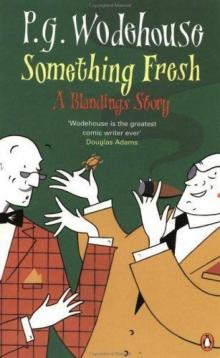 Something Fresh
Something Fresh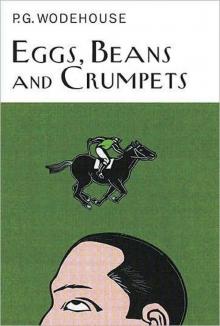 Eggs, Beans and Crumpets
Eggs, Beans and Crumpets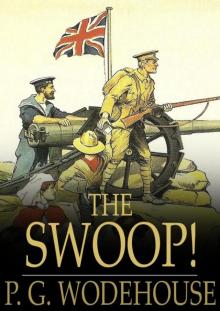 The Swoop: How Clarence Saved England (Forgotten Books)
The Swoop: How Clarence Saved England (Forgotten Books)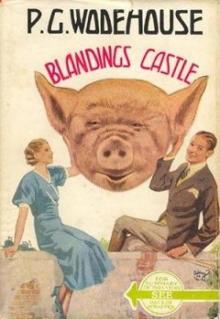 Blanding Castle Omnibus
Blanding Castle Omnibus Wodehouse at the Wicket: A Cricketing Anthology
Wodehouse at the Wicket: A Cricketing Anthology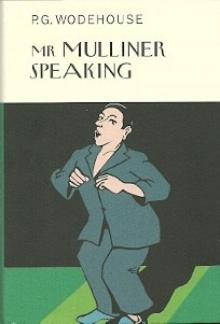 Mr. Mulliner Speaking
Mr. Mulliner Speaking Hot Water
Hot Water The Jeeves Omnibus - Vol 3: The Mating Season / Ring for Jeeves / Very Good, Jeeves
The Jeeves Omnibus - Vol 3: The Mating Season / Ring for Jeeves / Very Good, Jeeves The Mating Season
The Mating Season Meet Mr. Mulliner
Meet Mr. Mulliner The Man with Two Left Feet, and Other Stories
The Man with Two Left Feet, and Other Stories Not George Washington — an Autobiographical Novel
Not George Washington — an Autobiographical Novel Young Men in Spats
Young Men in Spats The Jeeves Omnibus Vol. 4
The Jeeves Omnibus Vol. 4 A Pelican at Blandings:
A Pelican at Blandings: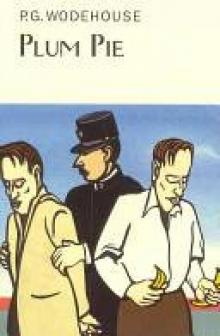 Plum Pie
Plum Pie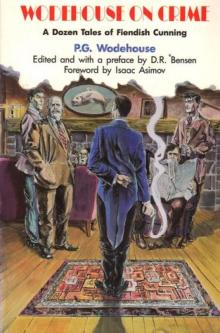 Wodehouse On Crime
Wodehouse On Crime The Jeeves Omnibus Vol. 2: Right Ho, Jeeves / Joy in the Morning / Carry On, Jeeves
The Jeeves Omnibus Vol. 2: Right Ho, Jeeves / Joy in the Morning / Carry On, Jeeves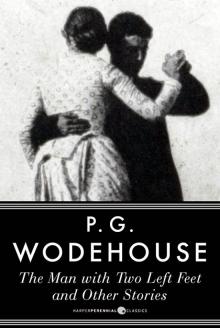 The Man With Two Left Feet
The Man With Two Left Feet Full Moon:
Full Moon: Jeeves and the Feudal Spirit:
Jeeves and the Feudal Spirit: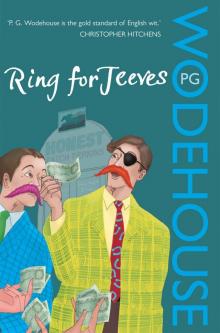 Ring For Jeeves
Ring For Jeeves Something New
Something New The Girl on the Boat
The Girl on the Boat The Girl in Blue
The Girl in Blue Pigs Have Wings:
Pigs Have Wings: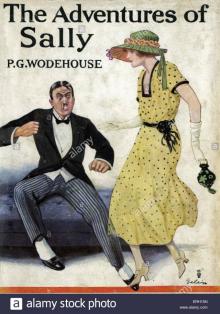 The Adventures of Sally
The Adventures of Sally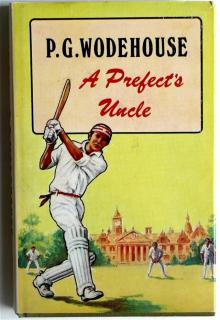 A Prefect's Uncle
A Prefect's Uncle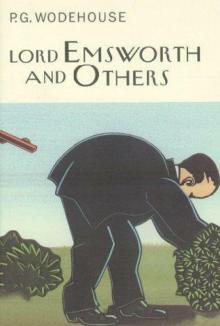 Lord Emsworth and Others
Lord Emsworth and Others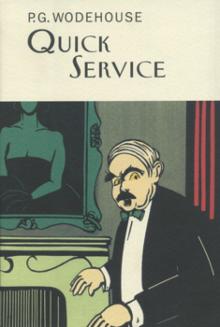 Quick Service
Quick Service The Prince and Betty
The Prince and Betty The Gem Collector
The Gem Collector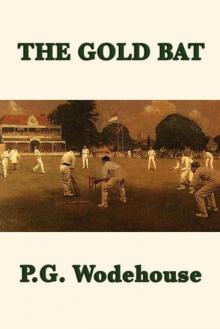 The Gold Bat
The Gold Bat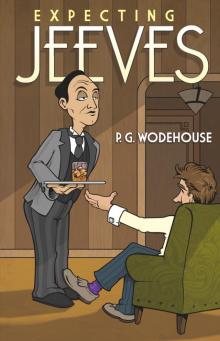 Expecting Jeeves
Expecting Jeeves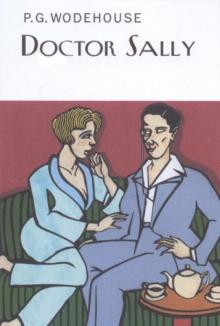 Doctor Sally
Doctor Sally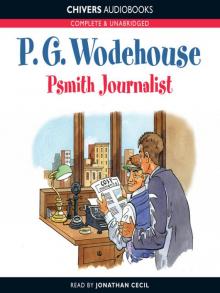 Psmith, Journalist
Psmith, Journalist The Golf Omnibus
The Golf Omnibus Heavy Weather
Heavy Weather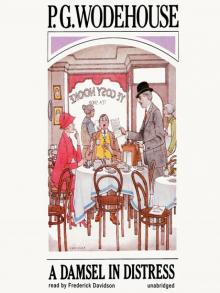 A Damsel in Distress
A Damsel in Distress The Coming of Bill
The Coming of Bill Summer Lightning
Summer Lightning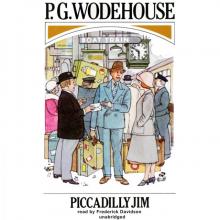 Piccadilly Jim
Piccadilly Jim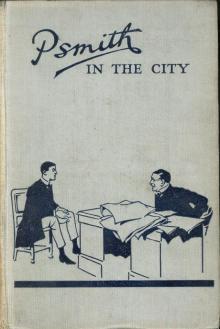 Psmith in the City
Psmith in the City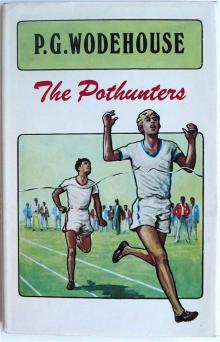 The Pothunters
The Pothunters Service With a Smile
Service With a Smile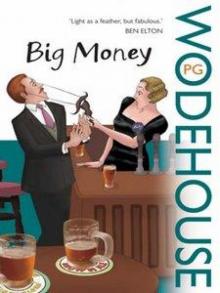 Big Money
Big Money Three Men and a Maid
Three Men and a Maid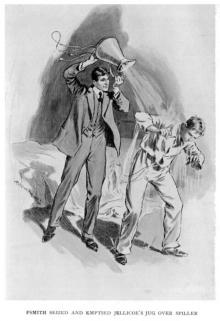 Mike and Psmith
Mike and Psmith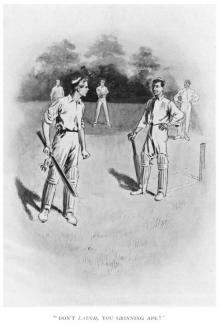 Mike
Mike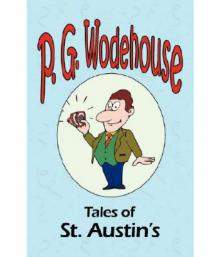 Tales of St. Austin's
Tales of St. Austin's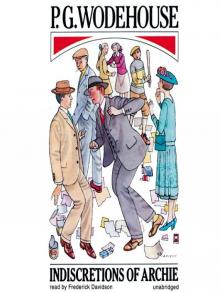 Indiscretions of Archie
Indiscretions of Archie Pigs Have Wings
Pigs Have Wings The Jeeves Omnibus - Vol 4: (Jeeves & Wooster): No.4
The Jeeves Omnibus - Vol 4: (Jeeves & Wooster): No.4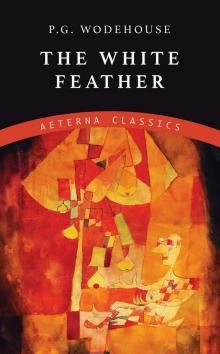 The White Feather
The White Feather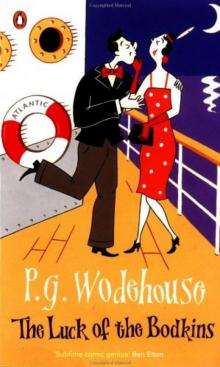 Luck of the Bodkins
Luck of the Bodkins THE SPRING SUIT
THE SPRING SUIT Full Moon
Full Moon Very Good, Jeeves
Very Good, Jeeves Thank You, Jeeves
Thank You, Jeeves Reginald's Record Knock.
Reginald's Record Knock. Wodehouse At the Wicket
Wodehouse At the Wicket LADIES AND GENTLEMEN V. PLAYERS
LADIES AND GENTLEMEN V. PLAYERS The Jeeves Omnibus - Vol 5: (Jeeves & Wooster)
The Jeeves Omnibus - Vol 5: (Jeeves & Wooster) The Jeeves Omnibus - Vol 1: (Jeeves & Wooster): No.1
The Jeeves Omnibus - Vol 1: (Jeeves & Wooster): No.1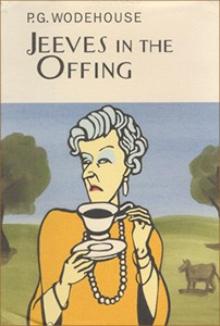 Jeeves in the offing jaw-12
Jeeves in the offing jaw-12